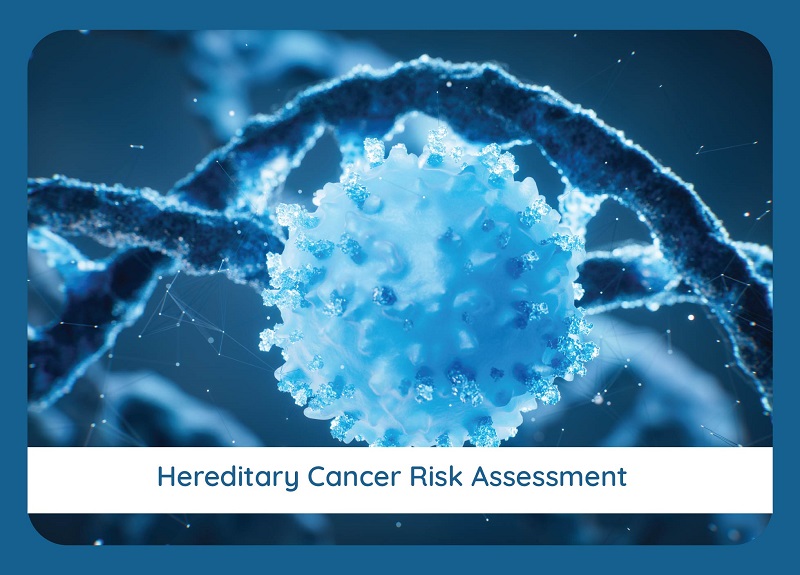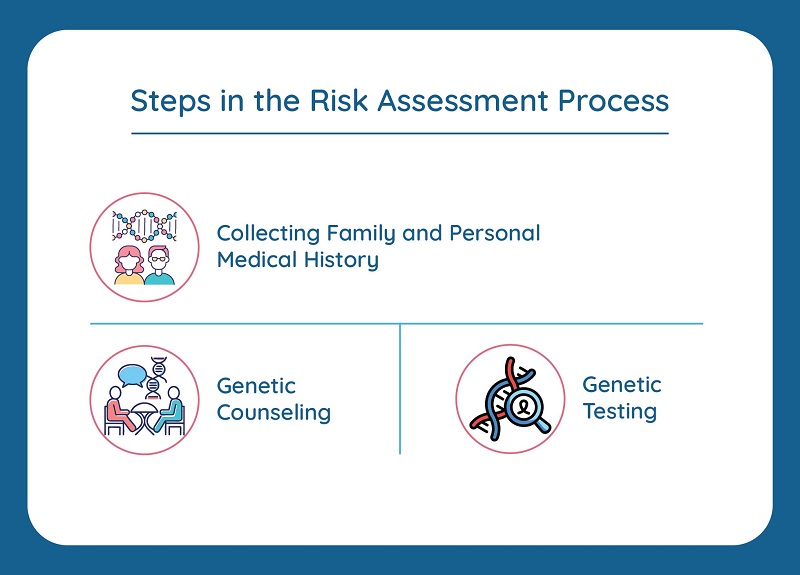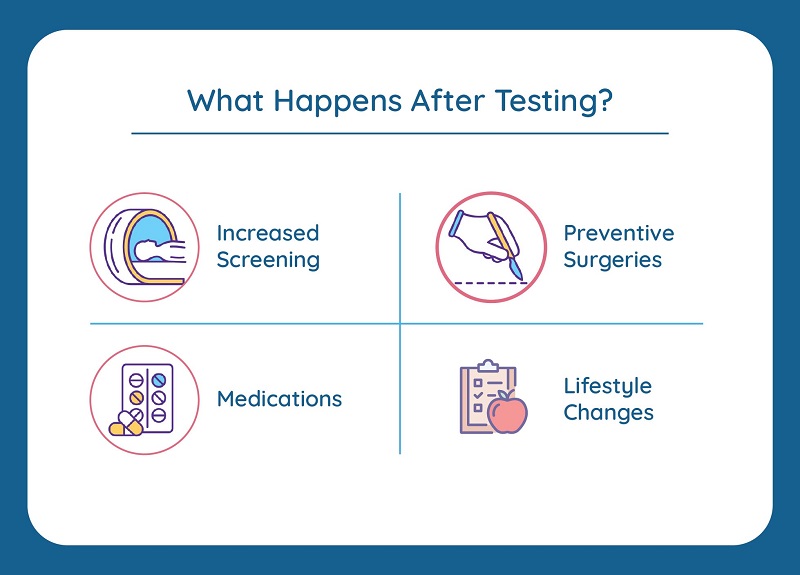
What is Hereditary Cancer?
Cancer can happen for many reasons. Sometimes, it's caused b things in the environmental or lifestyles choices like smoking or exposure to certain chemicals. But in some cases, cancer is inherited. This means that the risk of getting cancer runs in families and is passed down through genes. This is called hereditary cancer.
Genes are like instructions that tell our body how to work. We inherit genes from our parents — half from our mother and half from our father. Some genes help protect us from getting cancer. But if there's a change or error in these genes, called a mutation, the protection may not work properly. This can increase the chance of developing certain types of cancer.
Hereditary cancers are different from cancers caused by aging or lifestyle. They tend to appear at younger ages and may occur more than once in a person's lifetime or in several family members. Common hereditary cancers include breast, ovarian, colorectal, prostate, and pancreatic cancers, among others.
What Is Hereditary Cancer Risk Assessment?
Hereditary cancer risk assessment is a process used to find out whether someone has inherited a higher risk of developing cancer. It involves looking closely at personal and family medical history and may include genetic testing.
This process helps people understand:
If they have a higher risk for certain types of cancer
What steps they can take to lower their risk?
Whether other family members might also be at risk
It is not only for people who already have cancer. Healthy individuals with a family history of cancer can benefit from risk assessment too.
Who Should Consider a Risk Assessment?
You might want to consider a hereditary cancer risk assessment if:
You have close family members (parents, siblings, children) who had cancer before age 50
Several people in your family had the same or related types of cancer
Male relatives had breast cancer
You or a family member has already had genetic testing and found a mutation linked to cancer
Even if no one in your family has had cancer, some people may still carry inherited gene mutations. That's why understanding both family and personal history is important.
Steps in the Risk Assessment Process
- Collecting Family and Personal Medical History:
This is the first and most important step. A doctor, genetic counselor, or trained health professional will ask about your health history and that of your family. This includes:Who in your family has had cancer
The types of cancer they had
The ages they were diagnosed
Any patterns of cancer (like several relatives with the same type)
Your own health and medical conditions
The hereditary cancer risk assessment process usually follows these main steps:
You may be asked about three generations of family - parents, grandparents, aunts, uncles, siblings, and cousins.

- Genetic Counseling:
Genetic counseling is a key part of the process. A genetic counselor is a specialist who explains what your family history means and whether genetic testing makes sense for you. During counseling, you'll learn:How genes affect cancer risk
What genetic testing can and cannot tell you
What the results could mean for you and your family
What your options are based on the results
- Genetic Testing:
If your family history suggests a higher risk, genetic testing may be offered. This involves taking a small sample of your blood or saliva to look for mutations in specific genes known to be linked to cancer.Some well-known genes tested include:
BRCA1 and BRCA2: Linked to breast, ovarian, pancreatic, and prostate cancers
MLH1, MSH2, MSH6, PMS2: Linked to colorectal and uterine cancers (Lynch syndrome)
TP53, PTEN, CHEK2, and others: Linked to various other cancer risks
This step helps you make an informed decision about moving forward with testing.
The results take a few weeks and are shared with you by your healthcare provider or genetic counselor.
Understanding Test Results:
There are three main types of genetic test results:
- Positive:
This means a mutation was found that increases your risk for certain cancers. It doesn't mean you will definitely get cancer, but your chances are higher than normal. Your doctor will recommend steps you can take to manage or reduce your risk. - Negative:
This means no mutation was found in the genes tested. This is usually good news, but it doesn't mean your cancer risk is zero. You might still need regular screenings based on your personal or family history. - Variant of Uncertain Significance (VUS):
This means a change in a gene was found, but it's not clear if it affects cancer risk. These results can be confusing, but over time, as research improves, they may become better understood.

What Happens After Testing?
-
Increased Screening:
You might start cancer screenings at younger ages or have them more often. For example:Breast MRIs along with mammograms
Colonoscopies every 1-2 years instead of every 10
PSA tests for prostate cancer starting earlier
-
Preventive Surgeries:
Some people choose surgery to remove tissues or organs at high risk before cancer can develop. For example:Mastectomy (removal of breasts)
Oophorectomy (removal of ovaries)
If you're found to have a higher risk, you may be offered a personalized plan. This can include:
- Medications:
Certain drugs can lower cancer risk. For example, tamoxifen can reduce breast cancer risk in women with BRCA mutations. -
Lifestyle Changes:
Even with a genetic mutation, healthy habits matter. These include:Eating a balanced diet
Exercising regularly
Avoiding smoking
Limiting alcohol
Maintaining a healthy weight
These decisions are personal and should be made with guidance from a healthcare team.
Impact on Family Members:
Because hereditary cancer risk is passed through genes, your relatives might also carry the same mutation. If you test positive, your siblings, children, and even extended family members may want to get tested too.
Some families choose to talk openly about this to help each other make informed health decisions. It’s a way to protect future generations and stay ahead of cancer risks.
Emotional and Social Considerations:
Learning you have a higher cancer risk can be emotional. You might feel anxious, scared, or overwhelmed. That's completely normal.
You're not alone — support is available. Genetic counselors and support groups can help you understand your feelings and take control of your health.
It's also important to know your rights. In many countries, laws protect you from discrimination based on genetic information in areas like health insurance and employment.
Why This Matters?
Hereditary cancer risk assessment empowers you with knowledge. It helps you take proactive steps to reduce risk, catch cancer early, or even prevent it altogether.
It's about:
Early detection
Personalised care
Better outcomes
Helping families make informed choices
Hereditary cancer risk assessment is more than a medical test - it's a roadmap for your health. It connects your past (family history) with your future (preventive care). Whether or not you carry a mutation, the insights from this process can guide better decisions, more personalized care, and peace of mind.
If you or someone you know has a history of cancer in the family, consider talking to a healthcare provider about genetic counseling and testing. It's one of the most powerful tools we have in the fight against cancer.
